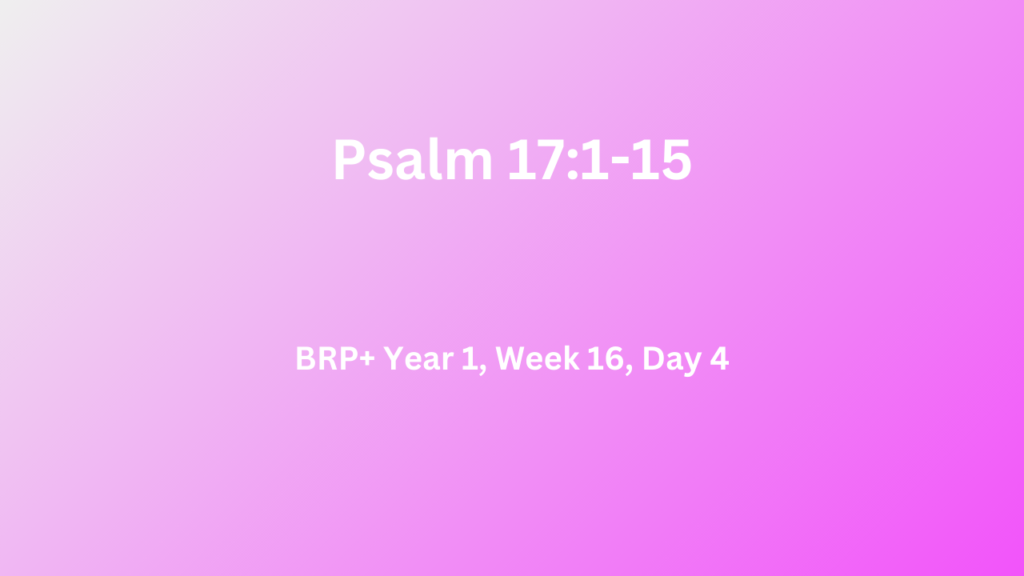Psalm 17:1-15
Q.1. Where did God’s delay in answering David’s prayers drive him? How did this trial change him? Did David have a clear conscience before God? – (Ps.17:1-5)
When our prayers are not answered as we would like them to be, this will do one of three things: (i) It can bring discouragement. (ii) It can turn people away from God. (iii) It can drive people closer to God. For David, it caused humble heart searching – You have tried my heart; You have visited me by night; You have tested me, and You find nothing (Ps.17:3). He checked his attitude and could say that his prayer was not from deceitful lips (Ps.17:1). It also increased his determination to please God, as he – purposed that my mouth will not transgress (Ps.17:3). He decided not to follow the paths of the ungodly (Ps.17:5).
Q.2. How did the Psalmist view God? What special request did he make? What were his enemies trying to do? What motivated David? – (Ps.17:6-15)
David understood that prayer requests, as with any requests of himself as king, could be answered with a ‘Yes’, a ‘No’, or a ‘Later’. He was certain that God would hear and answer his prayers (Ps.17:6). He saw God as His Saviour – Wondrously show Your lovingkindness, O Saviour of those who take refuge at Your right hand from those who rise up against them (Ps.17:7). He made a personal request – Keep me as the apple of the eye; Hide me in the shadow of Your wings (Ps.17:8). He was speaking of the pupil of the eye, that we protect diligently. He described the disregard that his enemies showed for his life, as they lived in comfort (Ps.17:9-12). He asked God to deal with them, and to protect him (Ps.17:13-14). This trouble and opposition only drove David to be more devoted – As for me, I shall behold Your face in righteousness; I will be satisfied with Your likeness when I awake (Ps.17:15).

